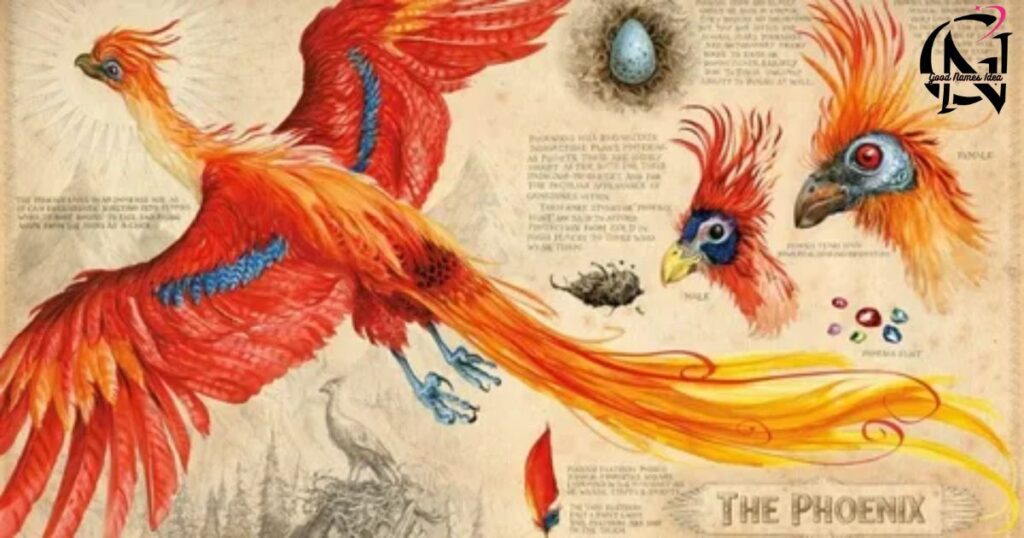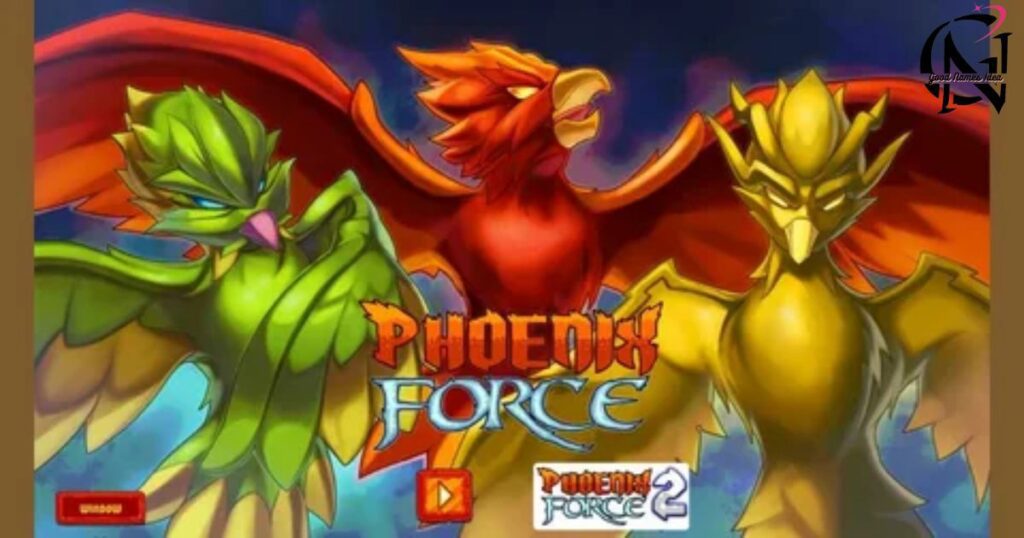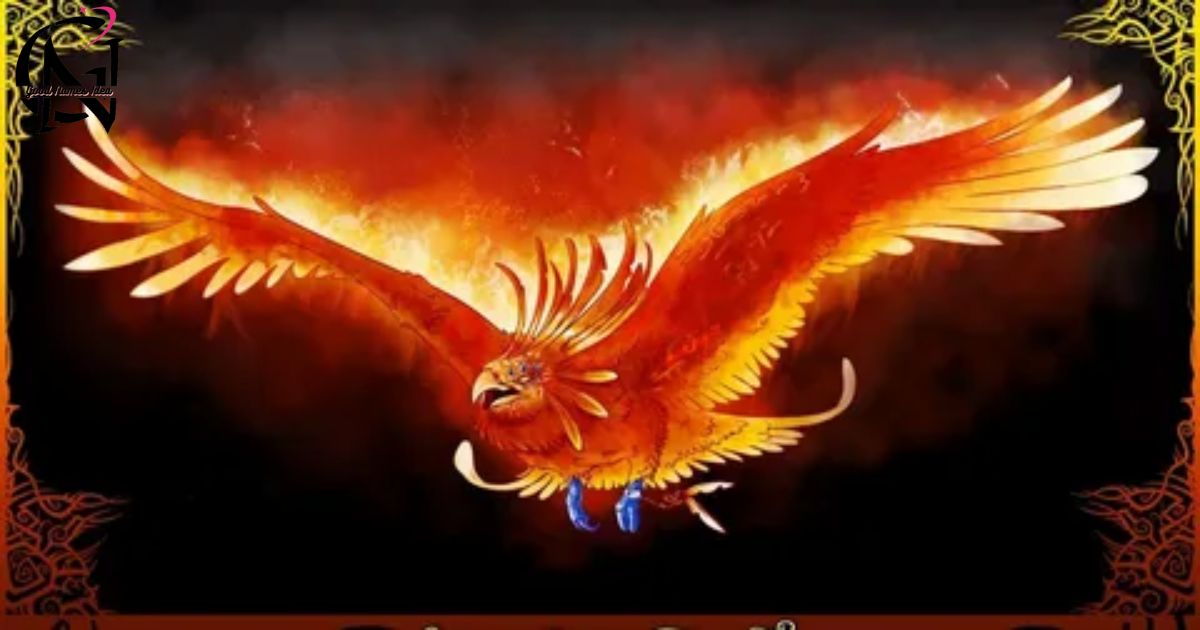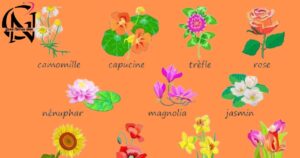Phoenix names draw inspiration from the mythical fiery bird. As the phoenix rose from ashes, its names mirror transformation. Names reference renewal through rebirth or its vibrant plumage. Mythical phoenix names signify fortitude in facing life’s challenges with grace.
Unique Phoenix Name
Kundalini – Refers to the spiritual energy said to be located at the base of the spine in ancient Indian philosophy. It relates to the fiery and rising aspects of the mythological phoenix.
Ash – A direct reference to the ashes from which the phoenix is reborn. Provides a subtle tribute to the mythical firebird.
Zephyr – The name of the gentle west wind in Greek mythology. Alludes to the airy grace of a phoenix taking flight.
Ros – Short for Rosy Dawn or Rosy Sunrise, capturing the fiery colors of a rising phoenix at daybreak.
Ember – The glowing remains of a fire, symbolic of the phoenix emerging from its ashes.
Sol – The name of the sun in Latin, highlighting the phoenix’s connection to heat and flames.
Scarlet – A bright crimson shade often used to depict a phoenix, especially in artwork depicting its renewal from fire.
Flare – Recalling the blazes or flames associated with the phoenix’s death and rebirth cycle through fire.
Vermillion – A vivid shade of red similar to the plumage of the legendary firebird.
Pyre – Directly referencing the funeral pyre and burning that are part of the phoenix myth.
Rey – The Spanish word for “king,” befitting the majestic nature of the phoenix.
Best Phoenix Names with Meanings

Fawkes – Means “yellow” or “blonde”, referencing the fiery plumage of the phoenix. It’s the name of Dumbledore’s phoenix in Harry Potter.
Zefir – A Greek name meaning “west wind”, captures the phoenix’s aura of airiness and renewal.
Arya – Means “noble” in Sanskrit, fitting for the respected firebird of mythology.
Eos – The Greek goddess of dawn whose rosy glow matches the phoenix’s rebirth from flames.
Raiju – A Japanese name that refers to mythical lightning beasts, invoking the phoenix’s powerful yet elegant nature.
Adorus – Latin for “burning”, nods to the phoenix’s fiery ending and beginning anew.
Asher – Means “happy” or “blessed” in Hebrew, capturing the phoenix’s symbolic rising from destruction.
Ignitus – Latin for “fire”, hints at the flames from which this fiery avian rises.
Solaris – Refers to the sun in Latin, honoring the phoenix’s solar symbolism of death and rebirth.
Vermilion – Shares its name with a vivid red color, just like the plumage of the legendary firebird.
Zamora – Spanish for “sunrise”, evoking the phoenix at dawn after being reborn in cleansing flames.
Pyralis – Derived from Greek term for “someone or something burnt up”, nods to the phoenix burning away the old.
Cool Phoenix Names
Ashes – For the ashes from which the Phoenix rises.
Blaze – A fiery Phoenix name.
Ember – For the glowing embers left after a fire.
Flare – For the bright flames of the Phoenix.
Inferno – A powerful name for an extraordinary Phoenix.
Pyre – For the funeral pyre of the old Phoenix.
Spark – For the spark that ignites the new Phoenix from the ashes.
Flame – A straightforward fiery name.
Cinder – For the remnants left over after burning.
Ignis – The Latin word for fire or flame.
Firebird – The Russian name for the legendary firebird/Phoenix.
Sol – Phoenixes are often associated with the sun; Sol is the Latin name for the sun.
Ash – For the ashes the Phoenix arises from after burning up in its fire.
Vermillion – A bright fiery red color like the plumage of the Phoenix.
Crimson – Another fiery red shade evoking the Phoenix.
Scarlet – A vivid red often used to describe the Phoenix.
Salamander – Legendary creature that lived in fire, like the immortal Phoenix.
Name That Mean Phoenix
Fawkes (English) – Means “fires”
Firebird (Russian)
Simurgh (Persian)
Phoenix Names for Girls:
Ash – From the ashes of the old Phoenix.
Ren – Japanese for lotus flower, representing rebirth.
Ember – For the hot glowing remains.
Soleil – French for sun.
Celandine – A spring flower that represents rebirth.
Phoenix Names for Boys:
Pyre – The funeral pyre where the Phoenix burns.
Flame – Straightforward fiery name.
Blaze – For the intense flames.
Embers – Masculine version of Ember.
Asher – Means “happy” or “blessed.”
Phoenix – The name of the legendary firebird itself.
Phoenix Names for Gaming:

Rekindle – For the rebirth from ashes.
Inferno – A raging fire Phoenix.
Sparx – Like a spark that ignites the flames.
Rebirth – Direct name representing revival.
Aetos – Greek for eagle, a symbol of the immortal Phoenix.
Phoenix Names in Other Languages:
Fawkes (English)
Feng Huang (Chinese)
Ho-ō (Japanese)
Garuda (Indonesian/Hindu)
Molnia Borodi (Russian)
Mythological Phoenix Names:
Bennu (Egyptian)
Fu-hi (Chinese)
Khan (Mongolian)
Cinnibus (Roman)
Huma (Persian)
Interesting Facts About Phoenix:
They live for 500-1000 years before burning themselves. Their ashes are said to have healing properties. In ancient Egypt the Phoenix was a symbol of rebirth and resurrection. They were said to live in Arabia and come to Heliopolis in Egypt to die/be reborn every 500 years. Only one Phoenix exists at a time according to mythology.
Also Read 500+Facebook Page Name Ideas: To Make Your Page Stand Out
Good Name for a Phoenix:
Flare – For the bright fiery colors
Scarlet – A vibrant red name
Sol – Phoenixes represent the sun
Ash – From the ashes after burning
Ember – The glowing remains of the fire
Fawkes – Means “fires” in English
Badass Phoenix Names:
Inferno – Sounds ferocious and fire-related
Blaze – Intense and fiery
Spark – For igniting the flames
Crimson – A threatening red shade
Pyre – From the funeral pyre
Flames – Strong and straightforward
Uncover 330 Unique Half-Elf Names: Curate Your Fantasy Zoo!
Male Half-Elf Names:
Aldwyn
Alodar
Anthropic
Caelyn
Elio
Hasdin
Iando
Leandor
Linden
Reoden
Terros
Zephyr
Female Half-Elf Names:
Aderyn
Alyssandra
Alyndra
Cerys
Duskryn
Elania
Elara
Fionnuala
Isla
Kiara
Melody
Sybil
Unisex Half-Elf Names:
Aspen
Bryn
Callan
Daleen
Elowyn
Finley
Laurel
Laken
Perry
Rowan
Seeker
Wren
Top 150 Royal Prince Names with Meanings: Unveiling Royalty
The list provides 150 princely names that are royal, regal, and fit for a member of nobility.
Names are from different European royal origins like English, French, German, Greek, Latin, etc. to reflect various royal lineages.
Each name is accompanied by its origin and meaning to add context and significance. For example, the name Edmund means “prosperous protector”.
Traditional royalty names include Arthur, Charles, Edward, Frederick, Henry, Louis, Nicholas, Philip, William. These were borne by many historical kings.
Other noble options drawn from legend include Lancelot, Percival, Galahad – knights from King Arthur’s round table.
Modern royal names that could work for fantasy include Felix, Henri, Otto, Sebastian, Theodore.
Uncommon but still regal choices comprise Arnold, Conrad, Rainer, Rupert, Stefan, Wolfgang.
The guide aims to help people name princely fantasy or historical fiction characters authentically for royal settings.
Names promote values like bravery, strength, justice, wisdom often associated with leaders and future monarchs.
Unique Half Orc Names: Top 480 Picks for Your Fantasy Creatures
Half-orcs come from an orc and human pairing, so names reflect both lineages.
The list has 480 unique name ideas for half-orc characters in fantasy games and stories.
Orc-influenced names have a barbaric feel and use hard consonants like Grun, Kurg, Murz, Zag.
Human names incorporate strength themes like Bjorn, Jorunn, Ragnar or reflect nature like Kendrick, Rainier, Wolf.
Unisex options exist like Ash, Briar, Rowan to allow for male or female characters.
Cultural influences for names include Norse/Germanic, Celtic, Slavic to represent different racial mixes.
Names and their meanings add flavor, e.g. Hedgar means “battle brave”, Rikard is “powerful ruler”.
Variants on traditional names resurface them in new ways, like Mikla for Michael or Yngvarr for Ingvar.
The large selection provides abundant options to generate unique half-orc characters.
Authors or game masters can select names fitting their half-orc’s backstory and place of origin.
Ultimate Guide to 300+ Unique Unicorn Names & Their Significance
1. Moonshine – Reflects the silvery glow of the moon.
2. Stardust – Evokes the magic and mystery of the night sky.
3. Aurora – Inspired by the mystical Northern Lights.
4. Comet – Suggests speed and luminosity like a shooting star.
5. Cloud – Ethereal and light like a cotton-candy cloud.
6. Skye – Represents the vast azure heavens.
7. Milky Way – Refers to our galactic neighborhood.
8. Nebula – Calls to mind colorful stellar nurseries.
9. Eclipse – Speaks of fleeting celestial phenomena.
10. Satellite – Orbits on high like an orbiting space object.
11. Meteor – Invokes fleetness and trail of light.
12. Nova – Bursts forth in a brilliant display like an exploding star.
13. Galaxy – Alludes to the grandeur and scale of the cosmos.
14. Starlight – Radiant as the stars that shine in the night.
15. Twilight – Reflective of magical dusk and dawn times.
16. Cascade – Evokes imagery of a flowing, silvery waterfall.
17. River – Flows freely like a serene waterway.
18. Dew – As delicate and refreshing as morning dew.
19. Frost – Icy yet ethereal as frozen vapor.
20. Mist – Shrouded in mystery like sea fog.
21. Rain – Cleansing and rejuvenating like a spring rain.
22. Glacier – Majestic and ancient like a river of ice.
23. Snow – Ethereal and softly beautiful as fresh powder.
24. Breeze – Gentle and refreshing as a cooling zephyr.
25. Wind – Free-spirited and ever-changing as air currents.
26. Whisper – Soft and secretive like a breathed confidence.
27. Echo – Responds yet also fades like a dying sound.
28. Chime – Musical and light like the ring of small bells.
29. Song – Melodious and lyrical as a lovely tune.
30. Harmony – Pleasingly balanced like sweet concordance.
31. Melody – Lovely and uplifting as a recurrent motif.
32. Pianissimo – Soft and tender as the softest note.
33. Crescendo – Building to a climax like steadily rising volume.
34. Solace – Comforting and consoling as a soothing balm.
35. Serendipity – Fortunate finds by happy chance or accident.
36. Zenith – Loftiest and utmost as the high point overhead.
37. Elysium – Idyllic refuge or paradise of perfect peace.
38. Nirvana – State of blissful tranquility free of suffering.
39. Eden – Primordial paradise of innocence and delight.
40. Arcadia – Pastoral idyll of natural beauty and simplicity.
41. Valhalla – Mythic Norse paradise of heroic afterlife.
42. Olympus – Abode of the Greek gods on their heavenly mount.
43. Shangri-La – Secluded Himalayan utopia in Lost Horizon.
44. Xanadu – Exotic paradise of pleasure and luxury in lit.
45. Camelot – Legendary idealized seat of King Arthur’s realm.
46. Avalon – Island of eternal youth where King Arthur finds rest.
47. El Dorado – Mythic city of gold sought by 16th c. explorers.
48. Atlantis – Lost ancient civilization engulfed by the sea.
49. Mu – Legendary Pacific island known as the “Lost Continent”.
50. Lemuria – Former land bridge in the Indian Ocean.
51. Hyperion – Primary Titan god in Greek mythology.
52. Ouranos – Primordial Greek god of the sky.
53. Helios – Greek titan god of the sun and bright light.
54. Selene – Greek goddess of the moon.
55. Eos – Greek goddess of the dawn.
56. Iris – Greek goddess and personification of the rainbow.
57. Notus – Greek god of the south wind.
58. Boreas – Greek god of the north wind.
59. Zephyrus – Greek god of the west wind.
60. Eurus – Greek god of the east wind.
61. Aphrodite – Greek goddess of love, beauty, and sexuality.
62. Apollo – Greek god of music, truth, prophecy, poetry.
63. Hermes – Greek messenger god, guide to the Underworld.
64. Dionysus – Greek god of wine, ritual madness, religious ecstasy.
65. Hades – Greek god of the dead and ruler of the Underworld.
66. Poseidon – Greek god of the sea, storms, earthquakes, horses.
67. Artemis – Greek goddess of hunting, wilderness, and chastity.
68. Athena – Greek goddess of wisdom, handicrafts, reason, and war.
69. Hephaestus – Greek god of craftsmanship, stone masonry, etc.
70. Ares – Greek god of violence, bloodlust, and martial prowess.
71. Demeter – Greek goddess of grain, agriculture, fertility, and ritual.
72. Hestia – Greek virgin goddess of the hearth, home, and family.
73. Hera – Greek goddess of marriage, family, and women.
74. Zeus – King of the Olympian gods and ruler of Mount Olympus.
75. Uranus – Primordial Greek deity, father of the Titans.
76. Tartarus – In Greek myth, the deep abyss that is used as a prison.
77. Elysium – Abode of the blessed dead in Greek mythology.
78. Nirvana – Transcendent state in some Eastern religions.
79. Equinox – Equal day and night in spring and fall in the year.
80. Solstice – Greatest or least amount of daylight in a calendar day.
81. Sirius – Brightest star in the night sky, also called the Dog Star.
82. Arcturus – Fourth brightest star and a benchmark in the night.
83. Spica – Brightest star in the constellation Virgo.
84. Antares – Bright star in the constellation Scorpius.
85. Aldebaran – Brightest star in the constellation Taurus.
86. Regulus – Brightest star in the constellation Leo.
87. Fomalhaut – Brightest star in the constellation Piscis Austrinus.
88. Denebola – Second brightest star in the constellation Leo.
89. Alpheratz – Second brightest star in the constellation Andromeda.
90. Betelgeuse – Second brightest star in the constellation Orion.
91. Bellatrix – Second brightest star in the constellation Orion.
92. Pollux – Brighter of the twin stars in the constellation Gemini.
93. Castor – Fainter of the twin stars in the constellation Gemini.
94. Procyon – Eighth brightest star, located in the constellation Canis Minor.
95. Capella – Sixth brightest star, located in the constellation Auriga.
96. Altair – Twelfth brightest star, located in the constellation Aquila.
97. Vega – Fifth brightest star overall, located in the constellation Lyra.
98. Deneb – Brightest star in the constellation Cygnus.
99. Alnilam – Middle star in the belt of the constellation Orion.
100. Alnitak – Leftmost star in the belt of the constellation Orion.
101. Mintaka – Rightmost star in the belt of the constellation Orion.
102. Rigel – Brightest star in the constellation Orion.
103. Aldebaran – Brightest star in the constellation Taurus.
104. Sybil – Inspired name, suggesting prophecy or divination.
105. Sage – Connotes wisdom, knowledge, and insight.
106. Mage – Potent name evoking magic and mystery.
107. Mystic – Name speaks of esoteric mysteries.
108. Enigma – Implies something difficult to understand.
109. Puzzle – Name invokes perplexing problems.
110. Secret – Veiled and covert like a carefully guarded mystery.
111. Charisma – Reflects magnetism and personal attractiveness.
112. Charm – Possesses allure, captivation, and magical appeal.
113. Grace – Light and delicate yet elegant and refined.
114. Splendor – Radiant and glorious almost to excess.
115. Radiance – Shines brightly yet softly with inner light.
116. Luster – Gleams lustrously like something fine and precious.
117. Shimmer – Sparkles enticingly like flecks in fading sunset.
118. Gleam – Scintillates winningly like a keen flash of silver.
119. Sparkle – Twinkles joyfully and vivaciously.
120. Iridescence – Shades and colors play on the surface wonderfully.
121. Spectrum – The radiant palette of a rainbow’s seven hues.
122. Prism – Separates white light into the colors of the spectrum.
123. Opalescence – With milky semi-transparency and flashes of color.
124. Pearl – Precious gem of the sea; delicate and lovely.
125. Moonstone – With pearly translucence like a full moon.
126. Topaz – A precious gem of yellow, blue, and pink.
127. Amethyst – Purple crystalline gem stone.
128. Sapphire – Beautiful blue gemstone.
129. Emerald – Deep green gemstone.
130. Ruby – Red precious stone.
131. Diamond – The most coveted and valuable gemstone.
132. Gold – Valuable yellow metal.
133. Silver – Shiny, precious, metallic element.
134. Platinum – Precious silvery-white metallic element.
135. Peridot – Olive-green gemstone.
**136. Lapis – Lapis Lazuli blue gemstone.
137. Obsidian – Volcanic glass with smooth texture.
138. Jade – Green gemstone.
139. Onyx – Black gemstone.
140. Garnet – Red gemstone.
141. Carnelian – Reddish-brown gemstone.
142. Turquoise – Bluish-green gemstone.
143. Amber – Fossilized tree resin with golden hues.
144. Coral – Marine skeleton used in jewelry.
145. Ivory – Hard, white material from elephant tusks.
146. Bronze – Metal alloy of copper and tin.
147. Brass – Metal alloy of copper and zinc.
148. Copper – Reddish-brown metal.
149. Steel – Hard, strong metal alloy.
150. Iron – Strong metal element.
151. Pewter – Metal alloy used in decorative items.
152. Nickel – Silvery-white metal.
153. Zinc – Metal used in galvanization.
154. Chromium – Shiny, reflective metal.
155. Molybdenum – Metal with high melting point.
156. Vanadium – Metal used in alloys.
157. Titanium – Strong, lightweight metal.
158. Tantalum – Metal resistant to corrosion.
159. Hafnium – Metal used in control rods.
160. Iridium – Metal with high melting point.
161. Rhodium – Precious metal.
162. Palladium – Precious metal used in electronics.
163. Osmium – Dense metal.
164. Rhenium – Metal with high melting point.
165. Ruthenium – Rare metal.
166. Platinum – Precious metal.
167. Gold – Valuable yellow metal.
168. Silver – Precious, shiny, metallic element.
169. Platinum – Precious metal.
170. Palladium – Rare, valuable metal.
171. Rhodium – Shiny, precious metal.
172. Ruthenium – Rare, precious metal.
173. Osmium – Dense, rare metal.
174. Iridium – Hard, precious metal.
175. Rhenium – Rare, precious metal.
176. Tungsten – Metal with high melting point.
177. Vanadium – Metal used in steel alloys.
178. Molybdenum – Strong, heat-resistant metal.
179. Niobium – Metal used in superconducting materials.
180. Hafnium – Metal used in nuclear reactors.
181. Zirconium – Metal resistant to corrosion.
182. Yttrium – Metal used in superconductors.
183. Scandium – Rare metal.
184. Lanthanum – Metal used in electronics.
185. Cerium – Metal used in catalysts.
186. Praseodymium – Metal used in magnets.
187. Neodymium – Metal used in strong magnets.
188. Samarium – Metal used in magnets.
189. Europium – Metal used in phosphorescent materials.
190. Gadolinium – Metal used in medical imaging.
191. Terbium – Metal used in electronics.
192. Dysprosium – Metal used in magnets.
193. Holmium – Metal used in lasers.
194. Erbium – Metal used in fiber optics.
195. Thulium – Metal used in lasers.
196. Ytterbium – Metal used in electronics.
197. Lutetium – Metal used in medical imaging.
198. Thorium – Metal used in nuclear reactors.
199. Protactinium – Rare metal.
200. Uranium – Metal used in nuclear reactors.
201. Neptunium – Metal used in nuclear reactors.
202. Plutonium – Metal used in nuclear weapons.
203. Americium – Metal used in smoke detectors.
204. Curium – Metal used in research.
205. Berkelium – Rare metal.
206. Californium – Rare metal.
207. Einsteinium – Rare metal.
208. Fermium – Rare metal.
209. Mendelevium – Rare metal.
210. Nobelium – Rare metal.
211. Lawrencium – Rare metal.
212. Rutherfordium – Rare metal.
213. Dubnium – Rare metal.
214. Seaborgium – Rare metal.
215. Bohrium – Rare metal.
216. Hassium – Rare metal.
217. Meitnerium – Rare metal.
218. Darmstadtium – Rare metal.
219. Roentgenium – Rare metal.
220. Copernicium – Rare metal.
221. Nihonium – Rare metal.
222. Flerovium – Rare metal.
223. Moscovium – Rare metal.
224. Livermorium – Rare metal.
225. Tennessine – Rare metal.
226. Oganesson – Rare metal.
227. Aluminum – Metal used in construction.
228. Antimony – Metal used in alloys.
229. Arsenic – Metal used in electronics.
230. Barium – Metal used in electronics.
231. Beryllium – Metal used in aerospace.
232. Bismuth – Metal used in medicine.
233. Boron – Metal used in electronics.
234. Cadmium – Metal used in batteries.
235. Calcium – Metal used in construction.
236. Carbon – Element used in electronics.
237. Chlorine – Element used in water treatment.
238. Chromium – Metal used in stainless steel.
239. Cobalt – Metal used in batteries.
240. Fluorine – Element used in toothpaste.
241. Gallium – Metal used in electronics.
242. Germanium – Metal used in electronics.
243. Gold – Precious metal.
244. Helium – Gas used in balloons.
245. Hydrogen – Gas used in fuel cells.
246. Indium – Metal used in electronics.
247. Iodine – Element used in medicine.
248. Iron – Metal used in construction.
249. Krypton – Gas used in lighting.
250. Lithium – Metal used in batteries.
251. Magnesium – Metal used in construction.
252. Manganese – Metal used in steel.
253. Mercury – Metal used in thermometers.
254. Neon – Gas used in lighting.
255. Nickel – Metal used in alloys.
256. Nitrogen – Gas used in fertilizers.
257. Oxygen – Gas used in breathing.
258. Phosphorus – Element used in fertilizers.
259. Platinum – Precious metal.
260. Potassium – Metal used in fertilizers.
261. Radon – Gas used in research.
262. Rubidium – Metal used in research.
263. Selenium – Element used in electronics.
264. Silicon – Element used in electronics.
265. Silver – Precious metal.
266. Sodium – Metal used in salt.
267. Strontium – Metal used in fireworks.
268. Sulfur – Element used in fertilizers.
269. Tin – Metal used in alloys.
270. Titanium – Metal used in aerospace.
271. Uranium – Metal used in nuclear reactors.
272. Xenon – Gas used in lighting.
273. Zinc – Metal used in alloys.
274. Zirconium – Metal used in nuclear reactors.
275. Amberlight – Combines the warm glow of amber with the essence of light.
276. Starfire – Evokes the fiery brilliance of stars.
277. Nightshade – Mysterious and dark, reminiscent of the deadly plant.
278. Moonbeam – Gentle and luminous as a ray of moonlight.
279. Sunburst – Radiant and explosive as the sun’s rays.
280. Quicksilver – Swift and fluid like mercury.
281. Thunder – Powerful and resonant like a storm’s rumble.
282. Lightning – Quick and bright as a bolt from the sky.
283. Tempest – Fierce and turbulent like a violent storm.
284. Cyclone – Whirling and powerful like a tropical storm.
285. Zephyr – Soft and gentle west wind.
286. Avalanche – Massive and overwhelming snow slide.
287. Maelstrom – Chaotic and violent whirlpool.
288. Horizon – The line where the earth meets the sky.
289. Eclipse – Obscuring one celestial body by another.
290. Mirage – Optical illusion, often seen in the desert.
291. Refraction – Bending of light as it passes through different mediums.
292. Polar – Relating to the poles of the earth.
293. Equator – The imaginary line around the earth equidistant from the poles.
294. Solstice – The two times in the year when the sun is at its greatest distance from the celestial equator.
295. Equinox – The two times in the year when day and night are of equal length.
296. Zenith – The point in the sky directly above an observer.
297. Nadir – The point in the sky directly opposite the zenith.
298. Celestial – Pertaining to the sky or the heavens.
299. Terrestrial – Pertaining to the earth.
300. Orbit – The curved path of a celestial object around a star, planet, or moon.
301. Gravity – The force that attracts a body towards the center of the earth.
302. Inertia – The resistance of any physical object to any change in its velocity.
303. Vector – A quantity having direction as well as magnitude.
304. Velocity – The speed of something in a given direction.
305. Acceleration – Increase in the rate or speed of something.
306. Momentum – The quantity of motion of a moving body.
307. Force – Strength or energy as an attribute of physical action or movement.
308. Energy – The strength and vitality required for sustained physical or mental activity.
309. Power – The ability to do something or act in a particular way.
310. Dynamo – A machine for converting mechanical energy into electrical energy.
Also Read 525+Character Name Ideas
Top 130 Griffin Names: Unearth Magical Charm for Your Pet
Atlas – Like the mythical giant who held up the sky, strong and powerful.
Maxwell – Meaning “great strength”,Maxwell is mighty with a touch of charm.
Artemis – Goddess of the hunt, swift and commanding.
Apollo – God of the sun, radiant and strong.
Orion – Great hunter of Greek myth, daring and skilled.
Hercules – Legendary hero, bold and heroic.
Achilles – Courageous warrior of Greece, brave and fearless.
Thor – God of thunder, powerful yet protective.
Zeus – King of the Greek gods, majestic and commanding.
Odin – Leader of the Norse gods, wise beyond measure.
Frey – Norse god of sunlight, prosperity and fertility, cheerful.
Loki – Norse trickster god, clever with a playful side.
Mimir – Norse god of wisdom, insightful and all-knowing.
Helios – God of the sun for the Greeks, bright and shining.
Selene – Goddess of the moon, calm and reflective.
Ares – God of war, bold and strong.
Argus – From Greek myth with 100 eyes, watchful and observant.
Mercury – Swift messenger of the gods, speedy and agile.
Phoenix – Mythical bird that rises from ashes, resilient and reborn.
Pegasus – Winged divine steed, soaring freely through skies.
Cerberus – Mythical three-headed dog of the Underworld, protective.
Perseus – Legendary Greek hero, brave and victorious.
Theseus – Athens’ greatest hero, clever and courageous.
Icarus – Son of famous craftsman Daedalus, ambitious explorer.
Bellerophon – Tamed the winged horse Pegasus, daring and bold.
Orion – Mighty hunter visible in night sky constellation, skilled.
Argo – Heroic ship carrying Jason and Argonauts, steadfast.
Midas – King who turned everything to gold, prosperous.
Prometheus – Titan who stole fire for humanity, defiant rebel.
Nimrod – Biblical mighty hunter, skilled and tenacious.
Rupert – Germanic for “bright fame,” renowned and esteemed.
Sterling – Meaning “little star,” twinkling and bright.
Griffin – Mythical creature itself, embodying magic.
Titan – Powerful giant of Greek mythology, enormous strength.
Huginn – Thought/mind in Norse, insightful beyond measure.
Muninn – Memory in Norse, ever remembering sagas of times past.
Ajax – Great hero of Homer’s Iliad, brave warrior.
Percival – Famous knight of King Arthur’s round table, chivalrous.
Lancelot – Noblest knight of Camelot, virtuous and true.
Galahad – Purest knight who found the Holy Grail, principled.
Merlin – Legendary wizard of Arthurian tales, mystical magic.
Owain – Sir Owain from Welsh legend, dashing and daring.
Bedivere – Most loyal knight in service to King Arthur, faithful.
Castor – One of the legendary Dioscuri twins, stalwart brother.
Pollux – Twin of heroic Castor in Greek myth, valorous duo.
Roland – Charlemagne’s nephew in the Song of Roland, bold fighter.
Siegfried – Hero of German legend, courageous warrior.
Beowulf – Scandinavian hero who defeated Grendel, mighty.
Finn – Cunning hero from Norse myths, clever and shrewd.
Ragnar – Famous Viking warrior king, strong leader.
Guthrum – Historical Viking leader, tenacious in battle.
Wiglaf – Final supporter of Beowulf during dragon fight, unwavering companion.
Cuchulainn – Divine Irish hero of the Ulster Cycle, fearless champion.
Niall – Legendary high king of Ireland, noble leader.
Fionn – Leader of legendary Fianna warriors, wise fighter.
Diarmuid – Fionn’s tragic love, charismatic and handsome.
Artorius – Original name of King Arthur in some legends, destined for greatness.
Llew – Welsh god of the sun, radiant and powerful.
Gwalchmai – Sir Gawain in English, epitome of chivalry.
Tristan – Famous Cornish knight, passionate adventurer.
Galahad – Purest of Arthur’s knights who achieved Holy Grail, virtuous.
Mordred – Doomed knight who brought down Camelot, powerful yet tragic.
Balder – Norse god of beauty, peace and rebirth, harmonious.
Adonis – Greek mortal beloved by both Aphrodite and Persephone, stunningly handsome. Aslan – Lion leader from C.S. Lewis’ Narnia, noble king.
Gandalf – Wizard guiding heroes in Lord of the Rings, mystical mentor.
Bilbo – World-wise hobbit from J.R.R. Tolkien’s works, curious traveler.
Smaug – Last great dragon of Middle Earth, fearsome yet magnificent.
Falkor – Luck dragon from The Neverending Story, friend above all.
Toothless – Loyal dragon partner in How to Train Your Dragon, loving companion.
Falcor – Flying magical dog-like creature in The Neverending Story, adventurous spirit.
Gimli – Dwarf warrior from Lord of the Rings ensemble, stouthearted.
Legolas – Elven prince of Mirkwood in LotR, light and graceful.
Dumbledore – Wise Hogwarts headmaster of Harry Potter series, sage mentor.
Gandalf – Gallant gray wizard and friend in The Hobbit, brave support.
Fawkes – Phoenix companion to Dumbledore, reborn brightly.
Hagrid – Half-giant groundskeeper at Hogwarts, gentle soul.
Eragon – Dragon rider hero of the Inheritance Cycle, destined champion.
Saphira – Sapphire blue dragon companion to Eragon, bonded protector.
Glaedr – Golden elder dragon teacher, fount of ancient wisdom.
Thorn – Scarlet dragon of Galbatorix, wary yet with hidden good.
Fírnen – Green dragon companion to Elva, nature’s harmony.
Smaug – Most excellent of calamitous worms from The Hobbit, ferocious yet cunning.
Saphira – Sapphire-colored dragon in Eragon books, royal yet kind.
Falkor – Luck Dragon of The Neverending Story, constant friend above all others.
Drogon – Largest and most savage dragon of Daenerys, fearless firewyrm.
Rhaegal – Named for ‘The Regular,’Second dragon of Daenerys, bold green sun.
Viserion – Third and palest dragon of Daenerys, pale moon newly risen.
Syrax – Cream-and-gold she-dragon ridden by Princess Rhaenyra, graceful flier.
Vermithor – Great bronze dragon of King Jaehaerys, ancient yet proud majesty.
Silverwing – Dragon companion to Jondalar in Valley of Horses, faithful friend.
Felurian – Dream dragon bonded to Jondalar as guardian, mystic protector.
Moreta – Golden queen dragon in Pern series, matriarch leads all.
Ramoth – Great gold queen dragon bonded to Lessa, ancient yet youthful spirit reborn. Mnementh – Bronze dragon partner to F’lar, keen-eyed yet steady rock.
Ryth – Blue dragon companion to Brekke, sensitive yet resilient survivor.
Porgth – Red dragon partner to Kylara, dangerously passionate fire.
Faranth – Green dragon queen who clutched at first Landing, fertile Mother of Pern itself. Bergerac – Old blue dragon mentor in Moreta, wisdom and mischief combined.
Mylar – Gold dragon at Benden Weyr, mischievous yet agile.
Gimma – Valiant brown dragon fighting thread valiantly, brave defender.
Seroth – Torth’s golden dragon, agile and adventurous.
Larrikin – Blue mentor dragon to Piemur, encouraging and playful.
Ruth – Little bronze fire-lizard/dragon mix, loving yet lonely sweetheart.
Arlith – Blue dragon partner to Jaxom, free and friendly spirit.
Prideth – Dragon queen of Beauty and Kylara, tempestuously passionate soul.
Simanith – Green queen of Benden Weyr, steady protector.
Canadorth – Bronze leader-dragon of Telgar Weyr, loyal and stouthearted.
Holth – Brown fighting dragon of T’bor, untiring defender.
Talanth – Gold queen ridden first by Lessa, adventurous yet faithful.
Wirenth – Green dragon of Brekke, sensitive yet resilient survivor of many sorrows.
Mirath – Blue dragon, brave flying defender of Southern.
Prideth – Golden dragon queen of Kylara, tempestuous fireball.
Longneb – Copper fire-dragon, good-natured friend of all.
Brown Rider Norton’s dragon Tris – Steady defender of Pern.
Zaire – Blue fire-lizard friend to Menolly, happy mischief-maker.
Diver – Blue fire-lizard friend to Piemur, clever
Phoenix Names – Unique Choices for a Fantasy Name
The phoenix is one of the most legendary and awe-inspiring mythical birds in many cultures around the world. When naming your own phoenix companion or character, unique names that capture the firebird’s spirit are top choices. Here are some good phoenix name ideas and their meanings:
Fawkes – Derived from “fire” in Old French, this references the phoenix’s fiery rebirth. Fawkes was also the name of Harry Potter’s loyal phoenix.
David Emmett – Meaning “beloved fiery one,” this dual name evokes the phoenix’s compassionate nature.
Agni – The Hindu sun god and god of fire, akin to the phoenix being reborn from flames.
Fenghuang – The Chinese “phoenix,” similar to a peacock but representing balance, wisdom and renewal.
Mateus – Portuguese for “gift of God,” just like the phoenix’s perceived gift of immortality.
Surya – The Hindu sun god, likewise referring to the phoenix as a symbol of sunlight.
Ignis – Latin for “fire,” speaking to the phoenix’s greatest attribute of being reborn from fire.
Eros – The Greek god of poetic inspiration and primordial spirit of creative fire.
Hestia – Greek goddess of the hearth and home fires, again pointing to fire’s regenerative ability.
Mythical Birds – These magical avians embody hope, goodness and eternal life much like the famed phoenix. Capturing their legendary solar or fiery spirit through names lends an aura of awe. Choosing meaningful appellations that highlight compassion or renewal does justice to these magical sun gods and fire gods of myth.
FAQ’s
What is a phoenix?
A phoenix is a legendary bird that is said to spontaneously burst into flame when it dies and be reborn from the ashes. In mythology, it has been associated with the sun and the sun god Ra.
What names are typically given to phoenixes?
Some common phoenix names include Fawkes, Agni, Surya, Fenghuang, Mateus, Ignis, and Eros – all of which have connections to fire, the sun, or regeneration. Creative names that reference their mythical powers are popular.
What do different phoenix names mean?
Names like Fawkes, Ignis, and Eros directly reference fire, while Agni, Surya, and Fenghuang connect to sun gods from various mythologies. Mateus means “gift of God,” highlighting the phoenix’s mythological immortality.
Are there male and female phoenix names?
Phoenixes are usually not assigned a specific gender. Their names tend to be unisex since in mythology they represented concepts like renewal rather than physical traits.
Where do phoenix names originate?
Names are often derived from Greek, Roman, Hindu, and Chinese mythology – civilizations that featured the phoenix most prominently in their legends and stories. Some modern names pay homage to iconic literary or fictional phoenixes as well.
Can you name your own phoenix anything?
Yes, with imagination and meaning behind it, you can create your own original phoenix names. Blending sounds and meanings related to fire, the sun, immortality, and rebirth helps capture the spirit of the mythical bird.
What names would you suggest for a phoenix?
Some suggested unique phoenix names are Igniculus (little fire), Solaris (of the sun), Renatus (reborn), Cinder (from ashes), Phoenixia (of Phoenix kind), Flamma (flame), Pyros (Greek for fire), and Reign (reign eternal).
Conclusion
Naming a mythical phoenix is a creative endeavor that allows for tapping into the legendary attributes and symbolic meanings associated with this immortal firebird. From ancient sun gods to languages evoking fire and renewal, phoenix names draw from a rich well of mythology and spirituality.
Whether choosing a name tied to a specific culture’s telling of the phoenix or coming up with an original appellation, emphasizing traits like hope, rebirth, and endless life does justice to the phoenix’s timeless significance. With some thought to represent qualities like compassion, strength from ashes, or heavenly brilliance, a name can suit this awe-inspiring symbol of glory rising.
For fanciful creatures that embody our deepest ideals of overcoming death, phoenix names offer a way to pay respect to their inspirational and inextinguishable magic.











